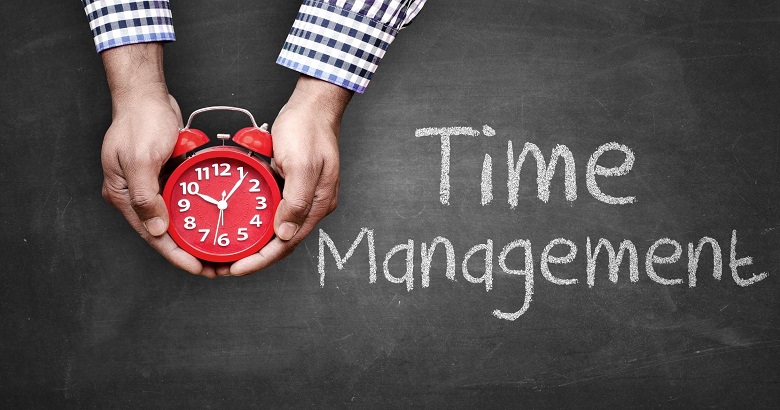
Developing self-accountability and enhancing productivity are crucial for achieving personal and professional goals. By cultivating effective daily habits, you can take charge of your responsibilities and maximize your efficiency. Here are ten habits to help you boost self-accountability and productivity in your daily life.
1. Set Clear Goals
Setting clear, achievable goals is the foundation of productivity. It provides a roadmap for your day, helping you focus on what truly matters.
How to Implement:
- Use a Planner or App: Tools like planners or digital apps such as Todoist or Trello can help you organize and prioritize tasks.
- Morning Review: Spend a few minutes each morning reviewing your goals. Visualize your success to enhance motivation and focus.
- SMART Goals: Ensure your goals are Specific, Measurable, Achievable, Relevant, and Time-bound.
Benefits:
- Clear goals provide direction and a sense of purpose.
- They help you track progress and celebrate small victories.
2. Create a Structured Routine
A structured routine builds consistency and discipline. By allocating specific times for tasks, you reduce procrastination and ensure essential activities are completed.
How to Implement:
- Daily Schedule: Develop a daily schedule that includes time for work, breaks, and personal activities. Consistency builds strong habits.
- Evening Preparation: Prepare for the next day by setting out clothes, organizing your workspace, and listing priorities for the morning.
- Adaptability: While structure is important, remain flexible to accommodate unexpected changes.
Benefits:
- A routine minimizes decision fatigue, freeing mental energy for creative and complex tasks.
- It establishes a rhythm that enhances focus and efficiency.
3. Practice Mindfulness and Meditation
Mindfulness and meditation improve concentration and reduce stress, allowing you to approach tasks with a clear and focused mind. This mental clarity enhances both accountability and productivity.
How to Implement:
- Morning Meditation: Dedicate 10-15 minutes each morning to meditation or deep breathing exercises. Apps like Headspace or Calm can guide you.
- Mindful Breaks: Take short breaks throughout the day to practice mindfulness, helping to reset and refocus your mind.
- Gratitude Journaling: Incorporate a gratitude practice to foster a positive mindset.
Benefits:
- Enhances self-awareness and emotional regulation.
- Reduces anxiety and improves overall well-being.
4. Utilize Time Management Techniques

Effective time management is key to maintaining productivity. Techniques like the Pomodoro Technique or time blocking can help you make the most of your work hours.
How to Implement:
- Pomodoro Technique: Work for 25 minutes, then take a 5-minute break. This technique helps maintain focus and manage fatigue.
- Time Blocking: Allocate specific periods for different tasks, ensuring dedicated focus time for each activity without distractions.
- Prioritize Tasks: Use the Eisenhower Box to distinguish between urgent and important tasks.
Benefits:
- Increases efficiency by reducing wasted time.
- Helps maintain a healthy work-life balance.
5. Limit Distractions
Minimizing distractions is crucial for maintaining focus. Identify potential interruptions and take proactive steps to reduce their impact on your work.
How to Implement:
- Notification Management: Turn off non-essential notifications on your phone and computer to minimize interruptions.
- Dedicated Workspace: Create a workspace that minimizes noise and interruptions, using noise-canceling headphones or a quiet room.
- Set Boundaries: Communicate availability to colleagues and family to minimize disruptions.
Benefits:
- Enhances concentration and task completion.
- Reduces stress and frustration from constant interruptions.
6. Reflect and Review
At the end of each day, take time to reflect on your progress. Reviewing what you accomplished helps identify areas for improvement and reinforces accountability.
How to Implement:
- Daily Reflection: Spend 10 minutes each evening reviewing your completed tasks and noting any challenges faced.
- Journaling: Maintain a journal to track your progress, thoughts, and reflections, helping you learn from each day’s experiences.
- Weekly Reviews: Conduct a weekly review to assess overall progress and adjust goals.
Benefits:
- Provides insights into your productivity patterns.
- Encourages continuous learning and growth.
7. Stay Organized
Keeping your environment and tasks organized reduces stress and enhances productivity. An organized workspace supports clear thinking and efficient task completion.
How to Implement:
- Regular Decluttering: Regularly declutter your workspace and digital files to maintain a tidy environment.
- Organizational Tools: Use folders, labels, and digital tools like Evernote or Google Drive to keep documents and tasks in order.
- Simplify Systems: Simplify your organizational systems to avoid over-complication.
Benefits:
- Reduces time spent searching for items or information.
- Creates a calming environment that enhances focus.
8. Prioritize Self-Care

Taking care of your physical and mental health is essential for sustaining productivity. Self-care prevents burnout and keeps you motivated.
How to Implement:
- Healthy Habits: Ensure you get adequate sleep, exercise, and nutrition. Regular physical activity boosts energy and mental clarity.
- Relaxation Time: Set aside time for relaxation and activities you enjoy, such as reading, hobbies, or spending time with loved ones.
- Regular Breaks: Incorporate regular breaks to rejuvenate and avoid fatigue.
Benefits:
- Enhances overall well-being and energy levels.
- Improves resilience and stress management.
9. Hold Yourself Accountable
Accountability involves taking responsibility for your actions and outcomes. By tracking your progress and setting deadlines, you reinforce personal accountability.
How to Implement:
- Accountability Tools: Use journals or apps like Habitica or Beeminder to monitor your goals and track your progress.
- External Support: Consider sharing your goals with a friend or mentor for external accountability and encouragement.
- Regular Check-ins: Schedule regular check-ins to evaluate progress and adjust strategies.
Benefits:
- Increases motivation and commitment to goals.
- Provides a sense of ownership and responsibility.
10. Celebrate Achievements
Recognizing your successes, no matter how small, boosts motivation and reinforces positive habits. Celebrating achievements encourages continued progress and productivity.
How to Implement:
- Rewards System: Reward yourself for completing tasks and reaching milestones, whether it’s a treat, break, or personal reward.
- Reflect on Success: Take time to reflect on your achievements and the steps that led to success, reinforcing a positive mindset.
- Share Achievements: Share your successes with others to build a supportive community.
Benefits:
- Enhances motivation and morale.
- Reinforces a growth mindset and encourages further achievements.
Wrapping Up
Incorporating these daily habits into your routine can significantly enhance your self-accountability and productivity. By setting clear goals, managing your time effectively, and prioritizing self-care, you can take control of your responsibilities and achieve your objectives. Remember, consistency is key—commit to these habits and watch your productivity soar. With dedication and persistence, you’ll find yourself accomplishing more and feeling empowered in your daily life.
Frequently Asked Questions
1. How can I maintain consistency in my daily habits?
Start small and gradually increase the complexity of your habits. Use reminders, habit trackers, and set specific times for each habit to build consistency.
2. What if I struggle with distractions despite limiting them?
Identify the root causes of distractions. Experiment with different strategies like changing your environment, using focus apps, or setting strict time limits for digital use.
3. How do mindfulness practices enhance productivity?
Mindfulness improves focus and reduces stress, allowing you to approach tasks with clarity. Regular practice helps you stay present and manage workloads better.
4. Can rewarding myself too often reduce motivation?
Balance is key. Use rewards for significant milestones rather than every small task to ensure they remain motivating without diminishing intrinsic drive.
5. How can I effectively reflect and review my daily progress?
Set aside a specific time each day for reflection. Use journals or digital tools to document achievements and challenges, and plan improvements for the next day.
